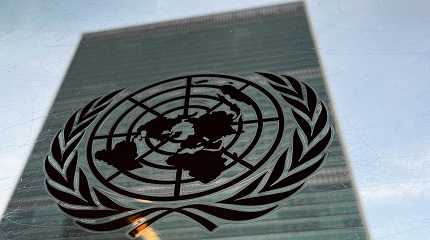
UNITED NATIONS, Apr 19 (APP):The United Nations Tuesday denied a press report that the organization plans to pull out of Afghanistan in May if the efforts to persuade the Taliban to let the Afghan women work for it do not succeed, saying there has been either “misinterpretation or misunderstanding” of what the world body officials have said in this regard.
“We are staying in Afghanistan,” United Nations Secretary-General Antonio Guterres’ spokesman, Stephane Dujarric, declared while replying to a question at the regular noon briefing at UN Headquarters in New York.
The report about UN warning about withdrawal from Afghanistan next month was published in The Guardian, London, based on the American news agency AP’s interview with Achim Steiner, Administrator of the UN Development Programme (UNDP).
“We are committed to do whatever we can to deliver for the people of Afghanistan,” Dujarric said, pointing out that the UN would review the situation resulting from the Taliban ban on Afghan women from working for the organization on May 5.
“We have been present in Afghanistan, I would say continuously, since the creation of United Nations, and that includes the worst period,” the spokesperson said.
“So,” he said, “We are continuing to try to do whatever we can to reach as many people as we can and continue to try to push back on this counterproductive, to say the least, edict (about ban on Afghan women to work for the UN) by the authority.”
At the same time, the spokesperson added, “We are reviewing how we can do our work and how we can do it while respecting International Human Rights Law, while respecting the Charter and while delivering humanitarian aid in an impartial way according to our principles.”
“We’re trying to see, how do we thread the needle.”
UN humanitarian aid agencies and its partners have been providing food, education and health care support to Afghans since the Taliban takeover and the economic collapse that followed it.
On Tuesday, UNDP released a report, saying the “draconian” restrictions on women’s ability to study and work have contributed to the calamitous socio-economic situation in Afghanistan, with devastating consequences for the population.
No country has recognized the Taliban as the legitimate government of Afghanistan, and the country’s seat at the U.N. is held by the former government of President Ashraf Ghani.
The 3,300 Afghans employed by the U.N. — 2,700 men and 600 women — have stayed home since April 12 but continue to work and will be paid, Dujarric has said. The U.N.’s 600 international staff, including 200 women, is not affected by the Taliban ban.




